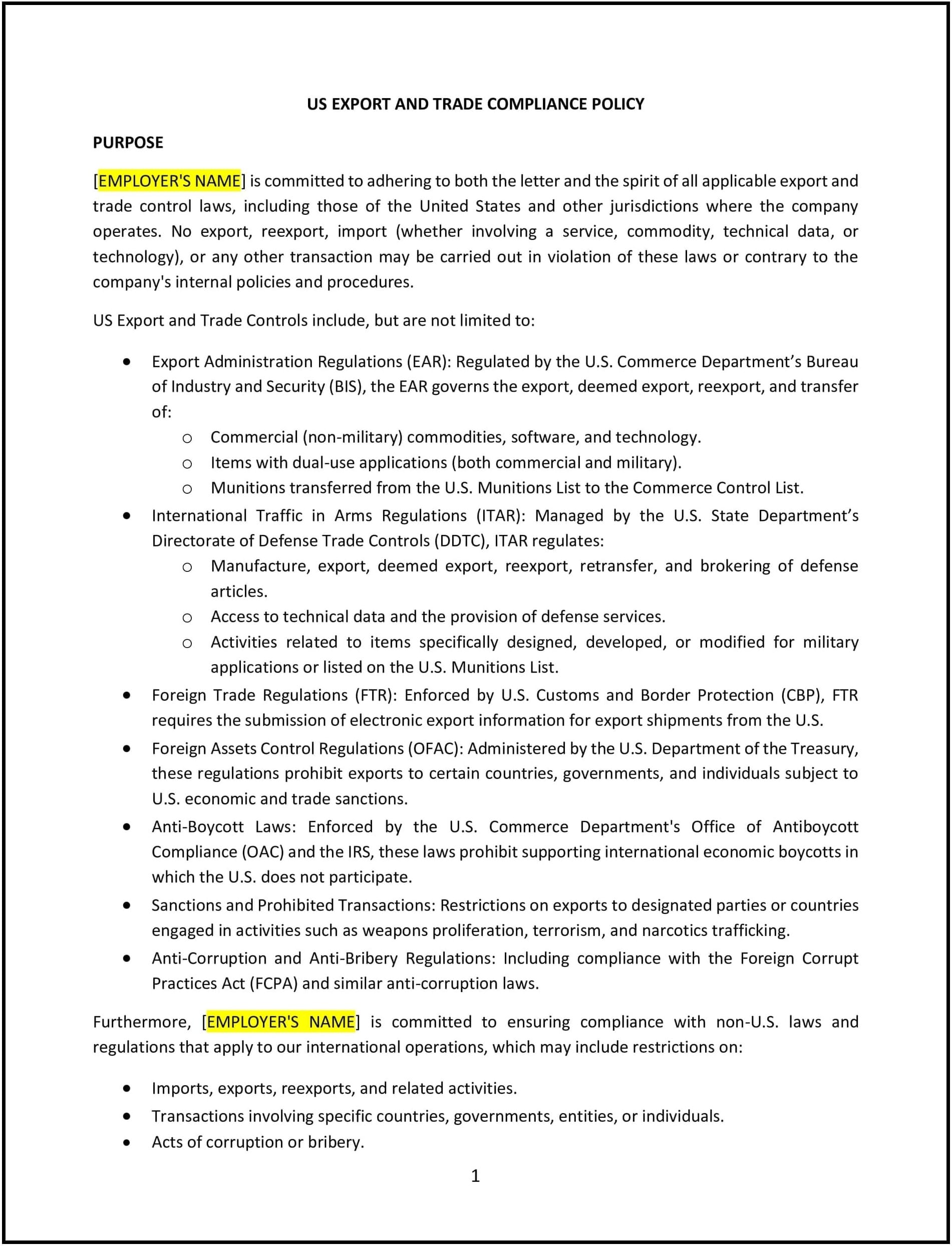US export and trade compliance policy (Arkansas): Free template
Got contracts to review? While you're here for policies, let Cobrief make contract review effortless—start your free review now.

Customize this template for free
Tuition assistance policy (Arkansas)
In Arkansas, a tuition assistance policy provides businesses with guidelines for supporting employees who pursue educational opportunities that enhance their skills and benefit the organization. This policy establishes the criteria for eligibility, reimbursement procedures, and conditions for participation, promoting professional development while balancing business needs.
This policy outlines the types of courses or programs covered, funding limits, and employee obligations to ensure transparency and accountability. By implementing this policy, Arkansas businesses can encourage employee growth and improve retention.
How to use this tuition assistance policy (Arkansas)
- Define eligibility: Specify which employees qualify for tuition assistance, considering tenure, job performance, or the relevance of the program to their role.
- Outline covered expenses: Clarify which costs are eligible for reimbursement, such as tuition, fees, or required textbooks, and set funding limits.
- Establish approval processes: Provide clear instructions for employees to apply for assistance, including deadlines and required documentation.
- Set participation requirements: Include conditions employees must meet, such as maintaining a minimum grade or completing the course within a specified timeframe.
- Communicate repayment obligations: Specify whether employees must repay assistance if they leave the business before a defined period after completing the program.
Benefits of using this tuition assistance policy (Arkansas)
This policy offers several advantages for Arkansas businesses:
- Promotes skill development: Encourages employees to acquire knowledge and skills that enhance their performance and benefit the business.
- Enhances retention: Demonstrates the business’s commitment to employee growth, fostering loyalty and reducing turnover.
- Supports compliance: Aligns with Arkansas and federal labor regulations, ensuring fair and lawful implementation.
- Improves employee engagement: Shows support for employees’ career aspirations, contributing to a positive workplace culture.
- Builds workforce capability: Invests in employee education to strengthen the business’s overall expertise and competitiveness.
Tips for using this tuition assistance policy (Arkansas)
- Address Arkansas-specific considerations: Reflect state labor laws and educational opportunities in the policy.
- Provide guidance on approved programs: List accredited institutions and courses relevant to business goals to ensure alignment.
- Monitor performance: Require employees to submit grades or progress reports to verify successful completion of courses.
- Document agreements: Maintain signed agreements detailing the terms of tuition assistance, including repayment obligations if applicable.
- Update regularly: Revise the policy to reflect changes in laws, business needs, or educational trends.